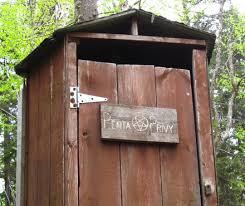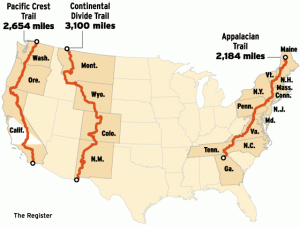Title: Privies
General Information about Item:
- Material Lore, Privy Types, Jokes, Potty Humor
- Language: English
- Country of Origin: United States
- Informant: John T. Brady ’19
- Date Collected: 10-31-17
Informant Data:
- John Brady is a male Dartmouth student in the class of 2019. John was born in the suburbs of Chicago, IL. He grew up just north of the city in a nice suburban town. John was part of a boy scout group growing up. Every summer, John and his fellow boy scouts went backpacking. They backpacked all over the United States. His scout troop went to various places such as New Mexico, California, Wyoming, and Wisconsin. One of his earliest backpacking trips was a section of the Appalachian Trail around North Carolina and Tennessee. The trail started out of Hot Springs, NC. John’s early experience with the Appalachian Trail sparked an interest and has had him continuing to hike when he so desires.
Contextual Data:
- Cultural Context: Backpackers often travel long distances along the trail. People who hike for extended periods of time are bound to need to use the restroom at some point. These restrooms on the trail are known as privies.
- Social Context: This specific term came about when talking about jokes and similar topics. Often backpackers need to go to the bathroom for daily functions. Even at places that have shelter for people to stay, privies or bathrooms are an essential part of a hiker’s hiking experience.
Item:
- Privies on the trail often have interesting markings written within them. Not only are they shared with all the hikers that pass through but they also can be named depending on what is written within them. For instance there is a penta privy which is well-known for its 5 sides (which is odd for any bathroom), further because it is located in the Hexacuba Shelter there is a lot of Satanic style writing within it. The Lorax shelter is dedicated to Dr. Seuss’ story The Lorax as the book is written out on the walls of the privy.
The Penta Privy
Associated file (a video, audio, or image file):
Transcript:
- “One of my favorite things in the privy was just reading stuff on the walls. One stupid thing that made me laugh was written in sharpie on the wall that says, “Look right.” so I look right and it says, “Look left.” And I just found myself laughing while I was going to the bathroom. It was so simple, but just entertaining. We also have the Penta Privy next to Hexacuba Shelter which is a tough place to sleep in. The Penta Privy has all these Satanic things written in it and it even has a pentagram on the door. And then there is another privy where the Lorax Privy where the entirety of Dr. Seuss’ The Lorax is written in the privy which is kinda funny.”
Collector’s Comments:
- I found this to be interesting and slightly disturbing at the same time. But potty humor is apparently a thing and can actually be the reputation of a privy. Privies (bathrooms) I think is a hiking name for a bathroom as I have never heard it be called such a name outside of a hiking context.
Collector’s Name: Justin Fowler
Tags/Keywords:
- Material Lore
- Potty Humor
- Privies






